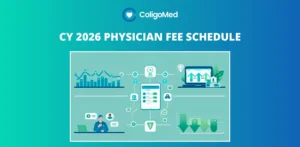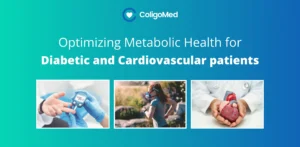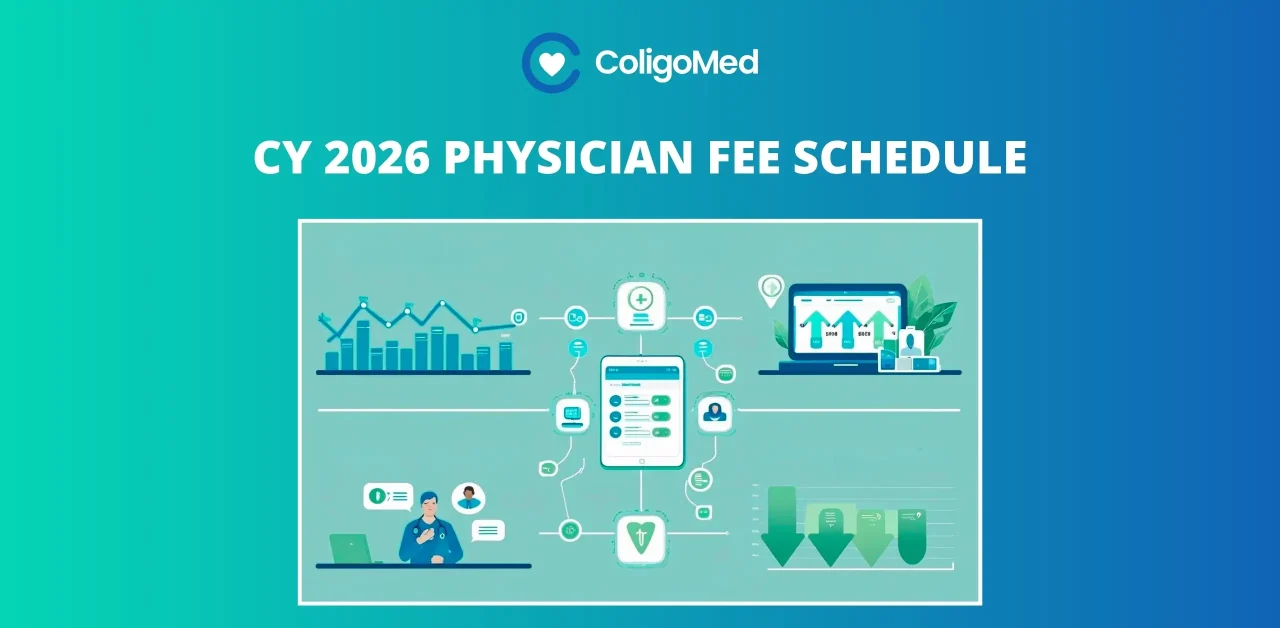The 2026 CMS Physician Fee Schedule introduces substantial payment increases, efficiency-focused RVU adjustments, new virtual supervision flexibilities, expanded telehealth access, changes in chronic disease management incentives, and refined quality reporting pathways. These updates are designed to promote efficiency, support innovation, and improve patient outcomes while modernizing the Medicare payment landscape
In this article we will deep-dive into areas where ColigoMed is well aligned with “Make America Healthy Again (MAHA)” policies and initiatives
Quality Measurements & Chronic Disease Management
The Proposed Changes
- Focus on Chronic Care: New outcome measures and add-on codes are proposed to support advanced primary care and behavioral health integration.
CMS is proposing to improve the care of chronic diseases by reducing burdens associated with the integration of behavioral health treatment into advanced primary care management.
Additionally, CMS is proposing to make Americans healthier by removing ten quality measures that did not directly improve patient health outcomes and adding five new outcome measures that focus on the prevention of chronic disease, including prescreening for diabetes.
If the proposed rule is finalized, a change to the Medicare Diabetes Prevention Program will allow more people with Medicare to access coaching, peer support, and practical training in dietary change, physical activity, and behavior change strategies to delay or prevent the onset of Type 2 diabetes for people with prediabetes, at no cost to the beneficiary.
ColigoMed Care Coordination Platform already enables CMS Care programs RPM, CCM, PCM, and independent Metabolic Psychiatry, Metabolic Wellness, Metabolic Wound Care specialty programs
Our integrated care models effectively combine behavioral and physical health, supporting comprehensive patient treatment plans through advanced digital health solutions.
ColigoMed’s solutions are ideally positioned to support RHCs and FQHCs by enabling simplified adoption and billing for Behavioral Health Integration (BHI), Psychiatric Collaborative Care Models (CoCM), and Communications Technology-Based Services (CTBS). Our interoperable platform ensures seamless integration of these services into advanced primary care workflows, driving higher-quality patient outcomes and improved billing efficiency for these critical healthcare providers.
- Ambulatory Specialty Model (ASM): Launching in 2027, this new payment model incentivizes early detection and optimal management of heart failure and low back pain by specialists.
More than two-thirds of people with Original Medicare live with at least one chronic condition, and their care accounts for most Original Medicare costs. Heart failure and low back pain are among the costliest conditions to Original Medicare, with annual spending of $10-13 billion and $6-$8 billion on each, respectively. People with these chronic conditions often experience fragmented care that can impede their ability to manage their health, leading to “low-value” care expenditures.
Low-value care includes avoidable hospitalization and unnecessary procedures and can increase spending without resulting in long-term benefits or improved health outcomes.
The proposed ASM, one of the newest CMS Innovation Center models, aims to improve beneficiary and provider engagement, incentivize preventive care, and increase financial accountability for specialists. ASM rewards specialists who detect signs of worsening chronic conditions early, enhance patients’ function, reduce avoidable hospitalizations, and use technology that allows them to communicate and share data electronically with patients and their primary care providers. If finalized, the model will begin in January 2027 and run for five performance years through December 2031.

ColigoMed Care Coordination Platform is built to reduce existing care delivery gaps and deep-rooted fragmentation in the US healthcare system
ColigoMed’s AI powered Care Coordination platform allows specialists to reduce “avoidable hospitalizations,” by facilitating real-time care coordination between specialists, primary care providers, and ACOs in its robust, build-to-scale infrastructure
Advanced Data Interoperability: ASM explicitly rewards specialists who “use technology that allows them to communicate and share data electronically with patients and their primary care providers.”. ColigoMed’s Data Unifier Hub sets the foundation of a truly interoperable healthcare system. Our platform breaks down data silos by connecting with a wide range of Electronic Medical Records (EMRs), health tracking devices (Apple Health, Fitbit, Keto-Mojo, several brands of at home monitoring devices, and body composition machines), Health Information Exchanges (HIEs), major health systems (Florida hospitals, Hospitals with Epic and Oracle Cerner) while providing secure, HIPAA-compliant data sharing capabilities
ColigoMed’s AI engine in collaboration with medically trained LLMs predicts readmissions by processing multiple data streams—clinical, behavioral, social determinants, and device-generated data, who are then enrolled into monitoring programs to avoid any ER visits and hospitalizations
Telehealth & Digital Health
What’s changing?
- Permanent Virtual Supervision: Physicians may permanently provide “direct supervision” virtually for most incident-to services (via real-time audio/video), except for higher-risk surgical procedures, which still require in-person supervision.
- Removal of Telehealth Frequency Limits: Permanent elimination of frequency caps on subsequent inpatient, nursing facility, and critical care telehealth visits.
The proposed permanent CMS telehealth regulations solidify ColigoMed’s virtual care offerings across cardiology, endocrinology, GI, pulmonology, metabolic psychiatry, and primary care. This regulatory clarity strengthens our ability to scale our virtual solutions and ensures compliance and optimal patient outcomes.
The Great Skin Substitute Disruption
What’s Changing?
CMS’s new approach to skin substitute reimbursement elevates the need to have evidence based wound care solutions. CMS’s emphasis on “products with the most clinical evidence of success” creates immediate demand for robust clinical data platforms. Real-time outcome tracking, comparative effectiveness data, and cost-per-healing metrics will become essentials needed.
ColigoMed’s AI powered wound care solution adopts a revolutionary approach to care management that is platform based, comprehensive and whole person centric.

Providers can effectively document wound information, stay audit-ready, and unlock higher reimbursements, Allows access to patient health data including remote biometric from various source systems and wound picture logging. Predictive wound healing progression allows for proactive detection of high-risk patients.
CMS’s 2026 Physician Fee Schedule reshapes care delivery, prioritizing efficiency, telehealth permanence, specialty accountability, and evidence-based wound care—areas where ColigoMed leads with advanced AI-driven solutions. Our platform uniquely supports Rural Health Clinics and FQHCs in chronic disease management, behavioral health integration, virtual care, interoperability, and patient cost transparency, driving better patient outcomes and financial efficiency. ColigoMed is proud to be at the forefront of transforming healthcare in lockstep with these major upcoming changes
Contact sales@coligomed.com for more information and detailed demos.



